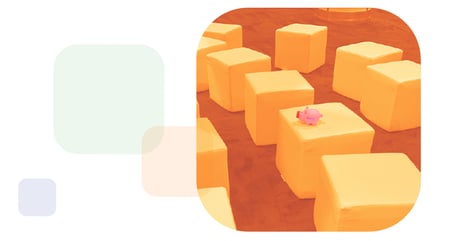Healthcare Industry Events: How To Connect Responsibly and Respectfully

Our team is at AHRMM21 this week, but believe it or not, trade shows will not - and cannot - be the same as they always were. Not right now, and maybe not for the foreseeable future.
We're all roughly aware that our lives and industries have changed. Even if someone just dropped into the environment of the healthcare supply chain this month, they probably aren't surprised that the field is a little different from the way they've traditionally expected it to look.
And that extends from all the areas where we might expect - sourcing is becoming a little more steady, though some pretty important industries, like plastics, are still experiencing shortages - to some areas that we hadn't thought much about - how do you make sure you can get your colleague on the phone if they're not guaranteed to be in the office?
Whether you loved trade shows because they gave you opportunities to learn about impactful improvements you can implement, or you just love collecting free pens, you're probably struggling with how to participate in 2021 and going forward.
And that sucks! We want every hospital desk in America to have one of our piggy banks on it.
Until this pandemic is in the rearview, you'll have to ask us to mail you a piggy bank, and we'll have to offer this pretty straightforward advice based on what has worked for us, event-wise so far.
1. Participate Online
The explosion in online conferences, meetups, and webinars in the last year has provided some great resources and potentially some burdens, as well. There's a lot going on all the time.
But the benefit is that you can pick and choose what's convenient for you, including watching videos of live events well after they've happened. That's absolutely the case for the virtual version of AHRMM21 that's going on in September.
We'd highly encourage you to check out these virtual education opportunities, especially the Sept. 15 session that our CEO, Carl Natenstedt, is leading about how we helped Steward Health Care reach their loss and expiration avoidance goals.
If you want a preview of that story, you can read our case study today. (That's another great advantage that virtual presentations offer: tools you can download and use whenever you want.)
2. Get Vaccinated
Considering the number of vaccines that are going bad by the day, these are not hard to find or get. In fact we're beginning to see that boosters are not just a good idea but necessary for most folks.
We've talked lots about hesitance and outreach to overcome it. Use some of the resources we've shared if you encounter people professionally - or if you're one of those people - who haven't gotten a jab yet.
It's not new technology. It's not rewriting DNA. We know what's in it. You got a tetanus shot. Get this one.
3. Mask Up
C'mon. You know the drill by now.
4. Use Common Sense & Courtesy
Returning to the norm of social distancing (or enforcing it for the first time) seems frustrating at this point in the pandemic, but we can't argue that things aren't as dire as they ever were.
If someone doesn't want to shake your hand, this is not a personal insult. They are not spitting upon the honor of your majestic house (please, no spitting). They're trying to make sure that any healthcare workers that they encounter and the patients those workers encounter in turn are as safe as possible. It's actually the more considerate thing to do.
So offer a wave. Waves are polite.
5. That's It
There's no magic formula that allows you to do everything that you want and also remain 100% safe. Unless remaining 100% safe is what you want, in which case, you can do a pretty good job of controlling for that.
We'll see you - responsibly and respectfully - at plenty of events over the next year. Specifically the upcoming AHRMM21+ virtual conference, where the boss will present all the success we've had with loss and expiration avoidance projects with Steward Health Care.
See you there...?

